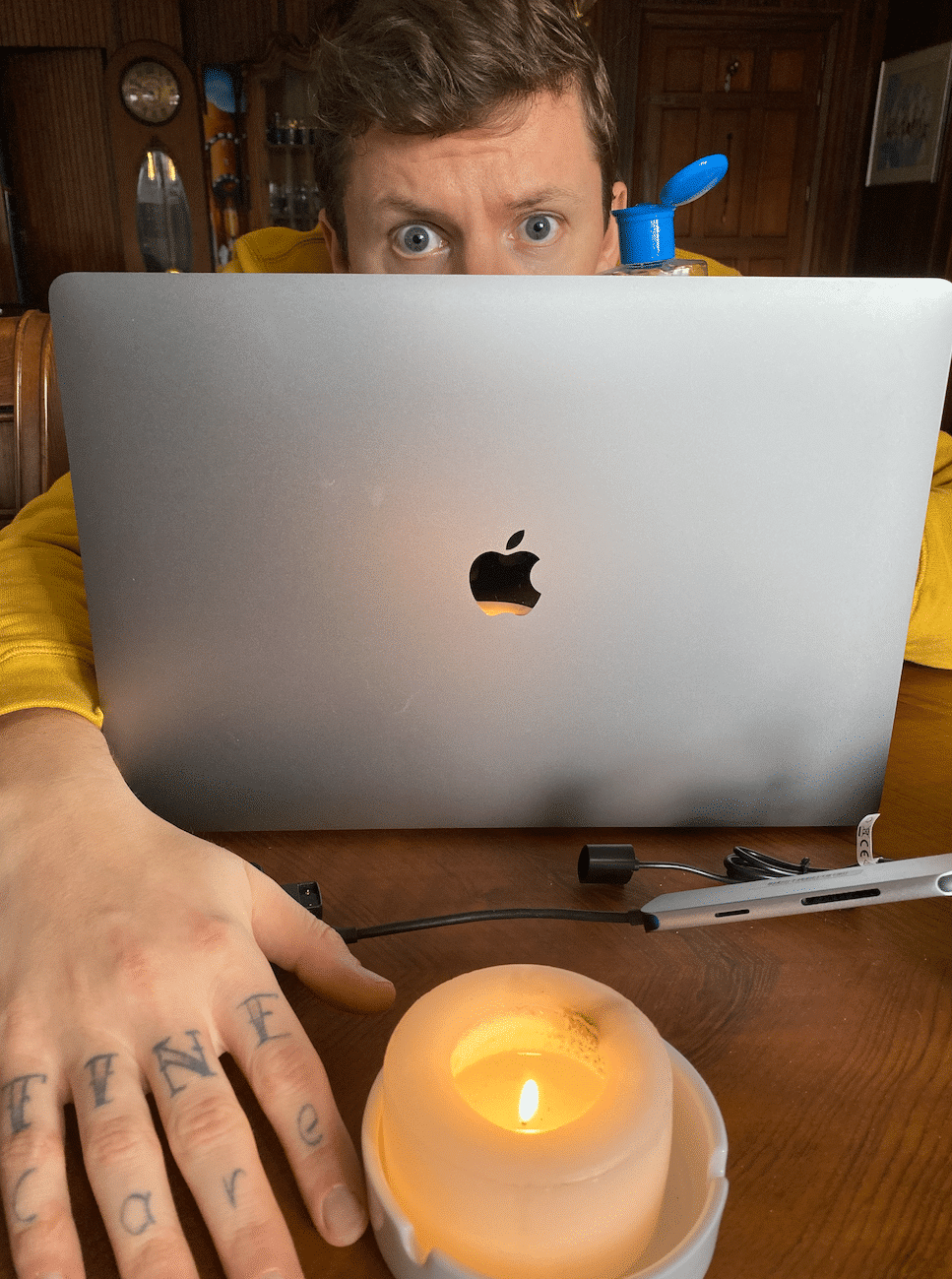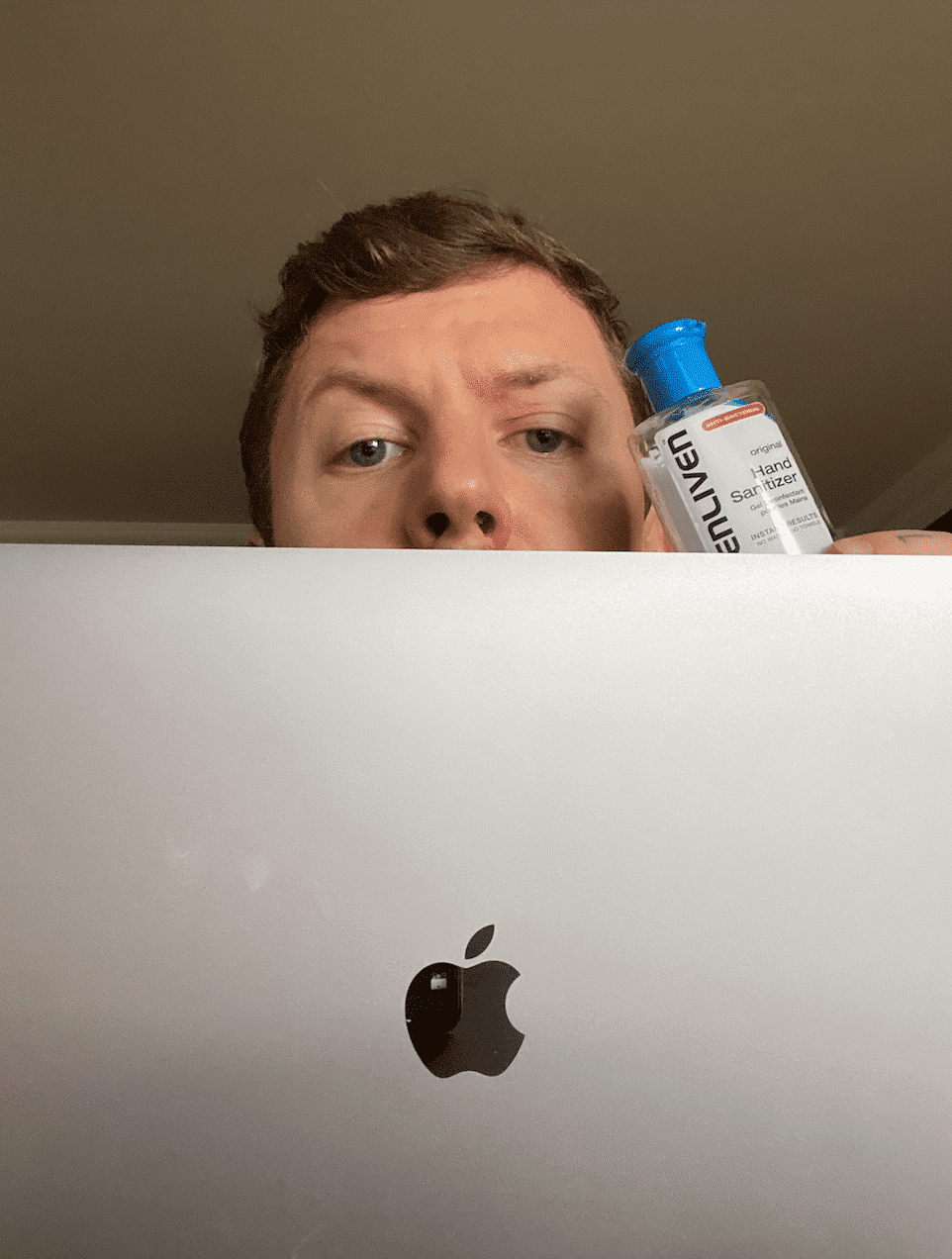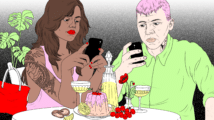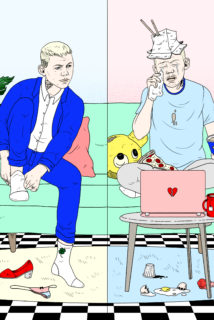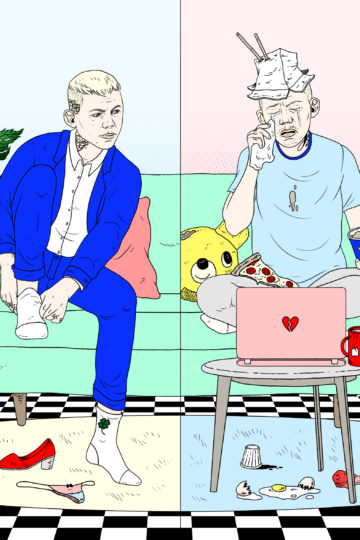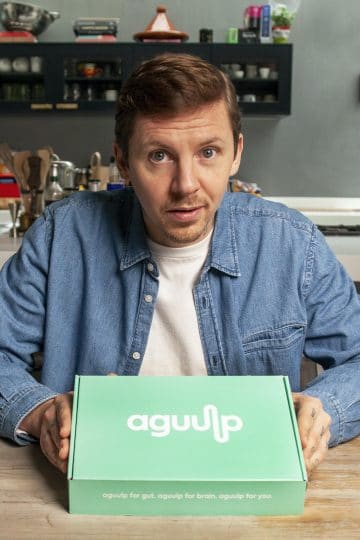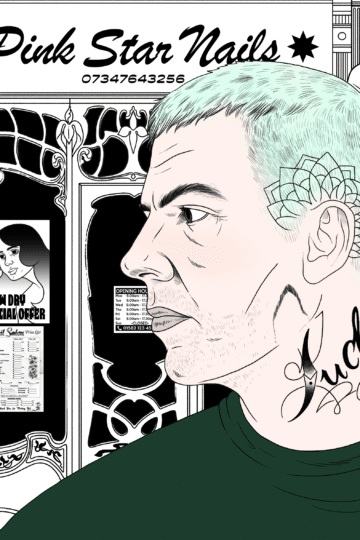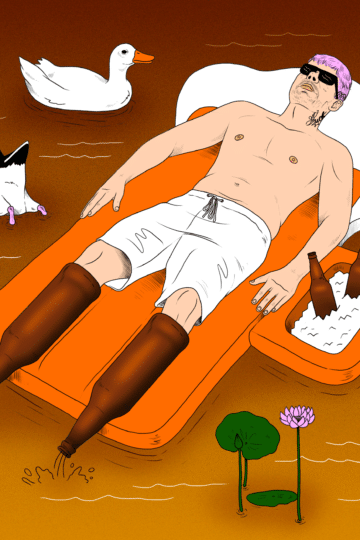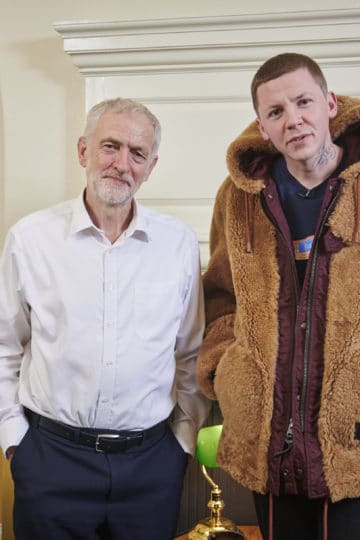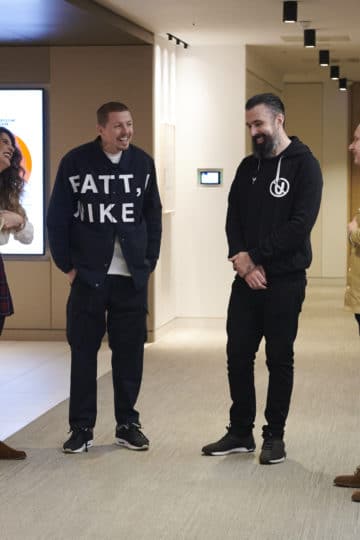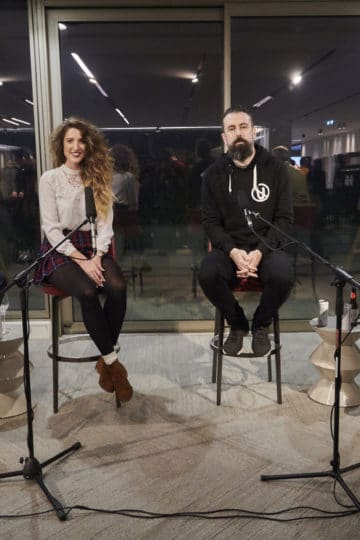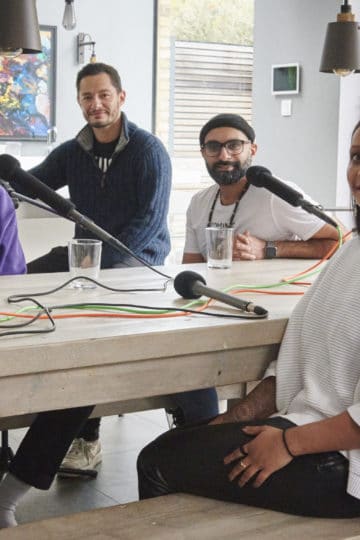Professor Green On Life During The Coronavirus Crisis
Professor Green
A new series of the Professor Green column begins with his powerful appraisal of the COVID-19 world and what it may mean for us individually and as a nation.
Where do I begin?
The beginning would normally be a good shout, but this all started in December when I wasn’t aware of COVID-19. I was bedridden having just finished a tour feeling like I might have fallen victim to some sort of virus. It was probably less to do with anything I’d contracted and more to do with the intensity of the tour, all the adrenaline spikes, sharing a tour bus and a stage with two younger and more enthusiastic artists, the lack of sleep due to all the tequila we drank while playing music till God knows what time in the back lounge of the bus and all the fun we had.
A tour bus is a little bit like being in quarantine, only without the fear of anything ever running out and no panicking about loo roll – no shitting on the bus was a rule long before I was born, let alone making music.
I normally laugh my way through difficulties, taking a cynical and pessimistic approach to humour – being British, it’s a birthright (along with complaining and being self deprecating).
In my older age I find myself being more optimistic.
I also currently find myself in Morocco, without any idea when I’ll be able to fly home – only able to speak to my friends and family by phone and FaceTime, with less tequila than I had on my tour bus (just one bottle of Patron actually, that I’m rationing heavily).
Anyone know how te-quil-a virus?
Amidst the whirlwind of hysteria, scaremongering, propaganda, conspiracies and fake news I’m inclined to take the route of the seemingly silver lining: a time to practise stillness, to get beyond what we initially recognise as boredom and slow down, reassess and re-evaluate what’s important. Check in with ourselves, with others, read more, write more, catch up on the ever increasing load of adulting we’ve been putting off – the bane of everyone’s life: life admin. Spring clean (in the current climate spring-cleaning to a much more clinical degree with something incredibly antibacterial, at least twice). Taking stock; out with the old, and making effort to introduce less ‘new’. Especially when you have more than enough to make do. Becoming more resourceful and less wasteful. Understanding the true value of ‘things’. There’s something mentally cleansing about the physical act of streamlining – tidy room, tidy mind.
It sounds great doesn’t it?
An opportunity to clear the ever growing backlog of crap that your work and social life excuse you ever getting around to. Not an envelope left to open, everything unnecessary out of the way, space made for the things you do use and love. Knowing where each of those things are. Heaven.
A chance for us to breathe. A chance for the world to breathe. With planes grounded and industries increasingly slowing to a stop there’ll surely be a noticeable decrease in air pollution. In noise pollution. A chance for wildlife to flourish. I’m not a forestry or conservation expert, nor am I a wildlife species conservation expert, but I have seen ‘The Biggest Little Farm’ (with all the time you have on your hands I’d recommend it, I haven’t seen anything as warming or nourishing in ages). And ‘Peanut Butter Falcon’. Watch ‘Peanut Butter Falcon’.
I digress, this is all great, if it’s a luxury you’re afforded.
The problem, however, is there are many people who can’t sit this out at home on Duolingo learning a language, picking up a past hobby and strumming on a guitar, limbering up rusty fingers and running them along a piano, or signing up to a multitude of Michelin star chef masterclasses in an attempt to become the cook you were never destined to be.
That rainy day we were encouraged to save for? It’s here. And it’s not just a day; a large part of the mass hysteria is despite the many ever-changing predictions as to how long this will last, no one actually has a bloody clue. After all, “It is difficult to make predictions, particularly about the future.” Cheers Mark Twain.
There are people who were in isolation long before it was advised. Elderly without family, people with immobility issues, crippling anxiety, agoraphobia, people who felt alone amongst the ever increasing population; people bullied or who feel alien amongst their community, those who feel isolated because of a lack thereof.
This isn’t actually my first article on isolation. If you happened to see the channel 5 show ‘In Solitary’ you’ll have noticed how well I dealt with isolation. I’ve been trying to reduce the amount I feel like I’m being pulled apart by horses for quite a while now. I promise myself time and time again I’m going to say no to things, leaving some room in my life for. . . my life. Then on a Sunday evening I look at the week ahead and realise I’ve failed miserably. I didn’t think I’d have a legitimate excuse to avoid social gatherings and obligations or to be entirely selfish in my choices until I had a child, but here we are.
I’ve received plenty of caring messages. Netflix WhatsApp me regularly with programs they think I should watch (presumptuous), Domino’s have texted me more than once to let me know about ‘contact free delivery’, while Deliveroo and Uber Eats have done the same by way of email. It’s encouraging to see everyone’s doing their best to contain the virus. Not to mention stay in business.
Let’s talk about business.
The definition of insanity is doing the same thing over and over again and expecting different results.
Financial crash after financial crash, economic crisis after economic crisis, recession after recession – it would seem the fabric of our society is coming apart at the seams. It’s a failing system. Currency is worth less, what we value is ever apparently more than just money – but sadly, some of those things come at a price (food, accommodation, gas, electricity, social care). It’s a conundrum.
Thousands of people immediately unemployed or without wage. Businesses closing or worse, going bust. Our government insists we stay calm and don’t panic, our media, ever the sensationalists, spread panic. Our Prime Minister has advised we don’t frequent public spaces – cafés, pubs, clubs, restaurants, gyms, theatres, live venues, studios, record labels, spas, beauticians, hotels, airlines: all closing due to a lack of business/preservation of life.
But at what cost? At their own cost – and discretion.
It not being legally enforced means businesses can’t look to our government for loss of earnings to protect their businesses or their staff.
So will this be the end of capitalism or another run at it? Historically this is when the wealthy mobilise, seeing a silver lining amongst the panic and desperation of the less privileged; buying up anything and everything people are forced to part with in a struggle to stay afloat. On the cheap, of course. Seizing opportunity from people who have little to none.
Then there’s the psychological effects of what’s happening. The fear of catching the disease, the fear of loved one’s catching the disease with the information we have about how vulnerable anyone elderly and/or with an underlying health condition is. The stress of not knowing how to cope with whatever problems this pandemic will present. The frenzy it’s sending ill informed and panicked parts of our society into is seeing us descend into Black Friday/IKEA sale-like mania. Videos of fights breaking out in supermarkets are making their way onto Instagram or being shared on WhatsApp groups ever more frequently: they make for a hard watch, you’d hope the idea of isolation would encourage standing still and taking a deep breath, a greater humility and more care for one another, a rise in localism and a strengthening of community. Not fighting over bog roll and hand sanitiser (to stop the spread it’s worth noting other people need to wash their hands too).
As laws are being passed to halt any mass gatherings I can’t help but think about the old sayings ‘Strength in numbers’ and ‘Together we stand, divided we fall’. How do we come together when we quite literally cannot?
As the number of cases rise, so do the deaths – the most vulnerable and most susceptible to fatality being those already suffering with other illnesses and the elderly. In a world that leans towards prioritising the lives and well being of those who are well, will this be a time that reminds us those less well, fortunate or capable deserve an equal standing in society? The world could do with a bit more altruism. We all too often celebrate false idols, but the people making a real difference in this time are those making themselves vulnerable in order to care for those in greater need. Our firefighters, police officers, social and healthcare workers, already under-paid and over-worked, will be called upon further. The importance of services already under strain, understaffed and underfunded will surely be highlighted. But when all is said and done and we return to whatever normal will then be, will this be remembered?
I guess that’s where this article ends, with a question.
In a world post COVID-19 will we have jumped out of our hamster wheels, reconnected with the real world and be able to carry on forward having broken the habits all of which make us ugly – our excessive, wasteful nature; our greed? Or will we become our most ugly? How can anyone severely affected by this outbreak ever find any positive in what’s happening?
Even with my growing optimism I’m fearful. Hope aside and all things considered it’s hard to picture a better world.
I’ve heard it said the next order will come from chaos, but what that order may look like is anyone’s guess.
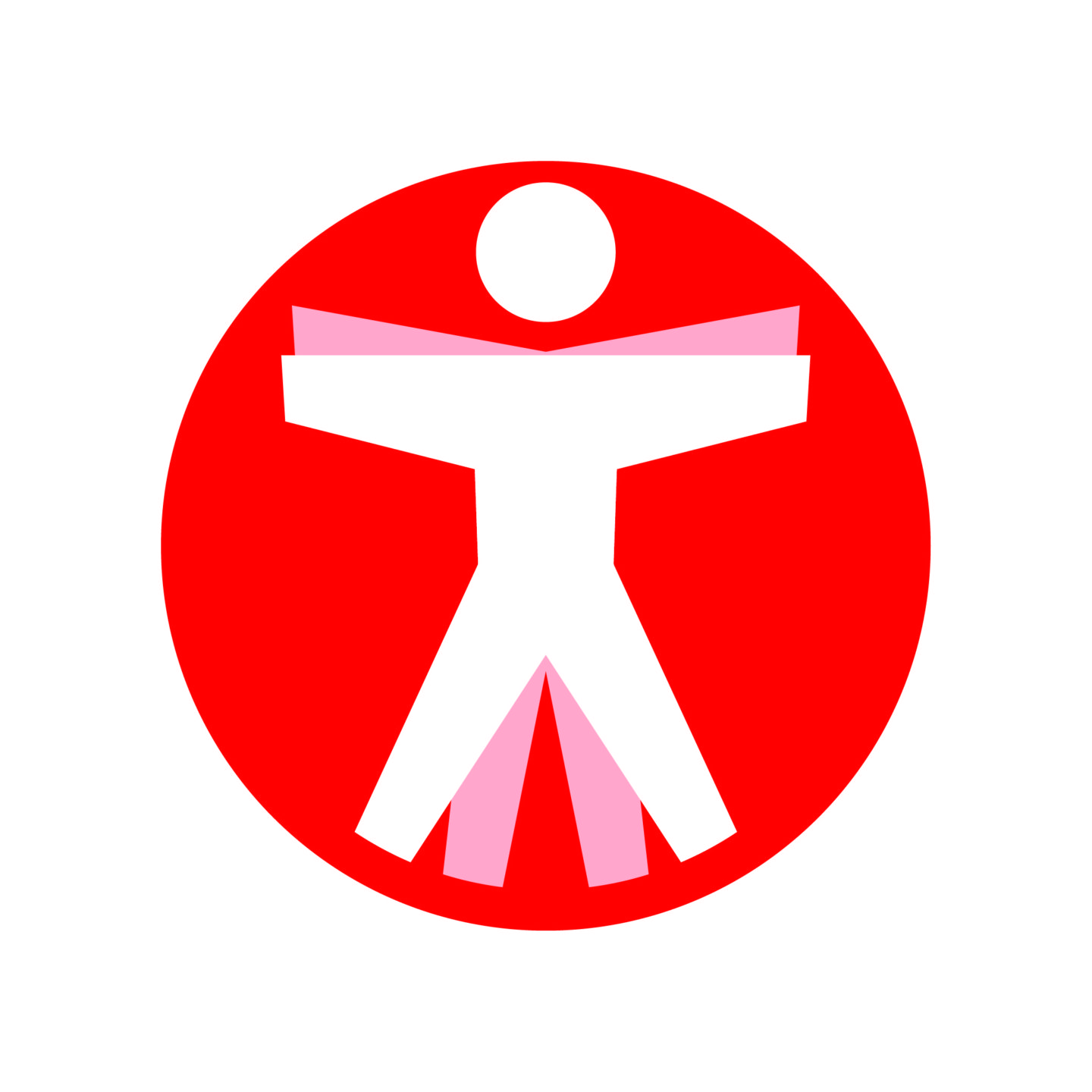
Read Professor Green First
Sign up to our daily newsletters - currently rebranded the 'Shut-In Bulletin' - to read Pro Green's columns hot off the press, plus the best of The Book of Man.
Trending

Join The Book of Man
Sign up to our daily newsletters to join the frontline of the revolution in masculinity.




